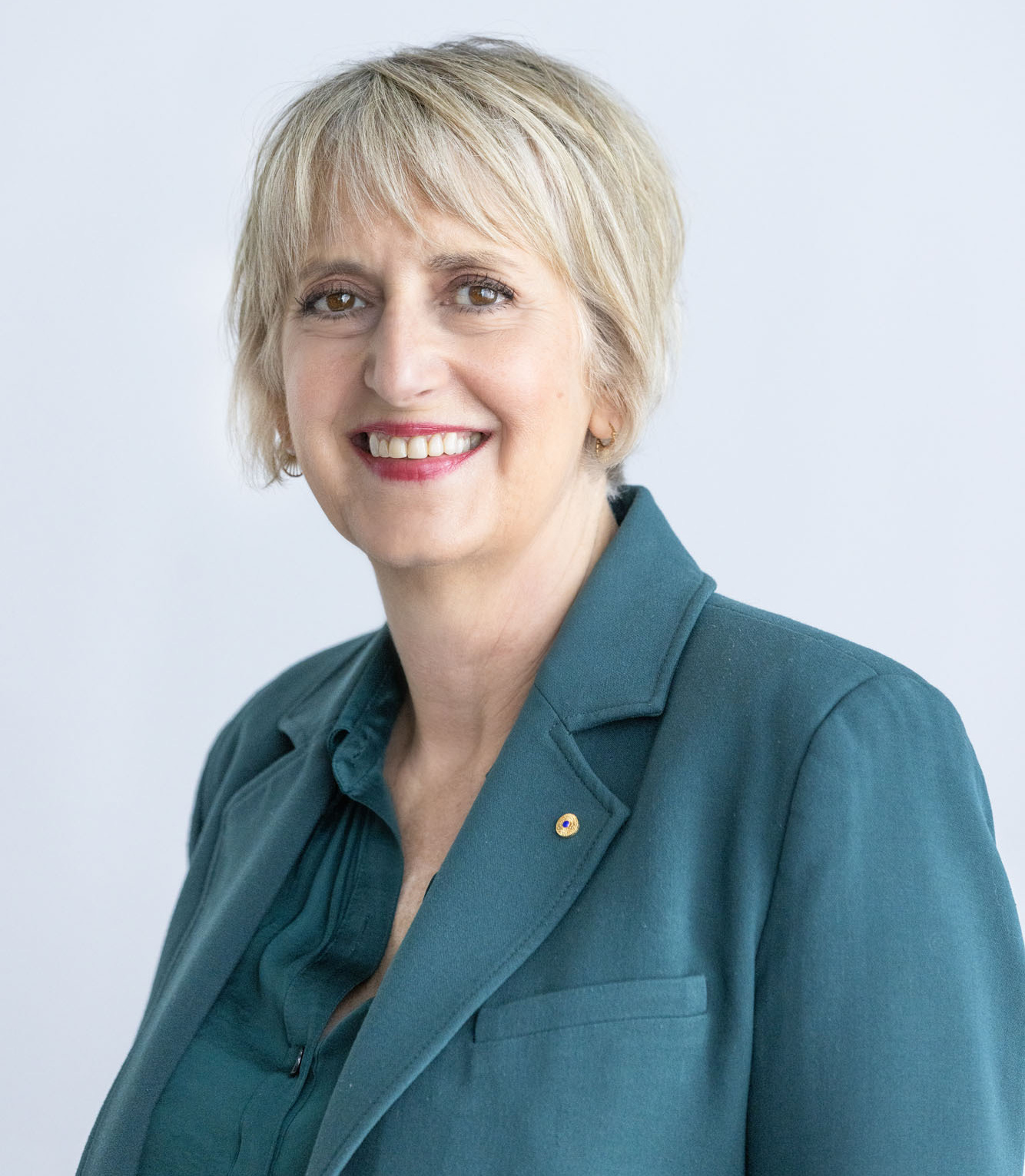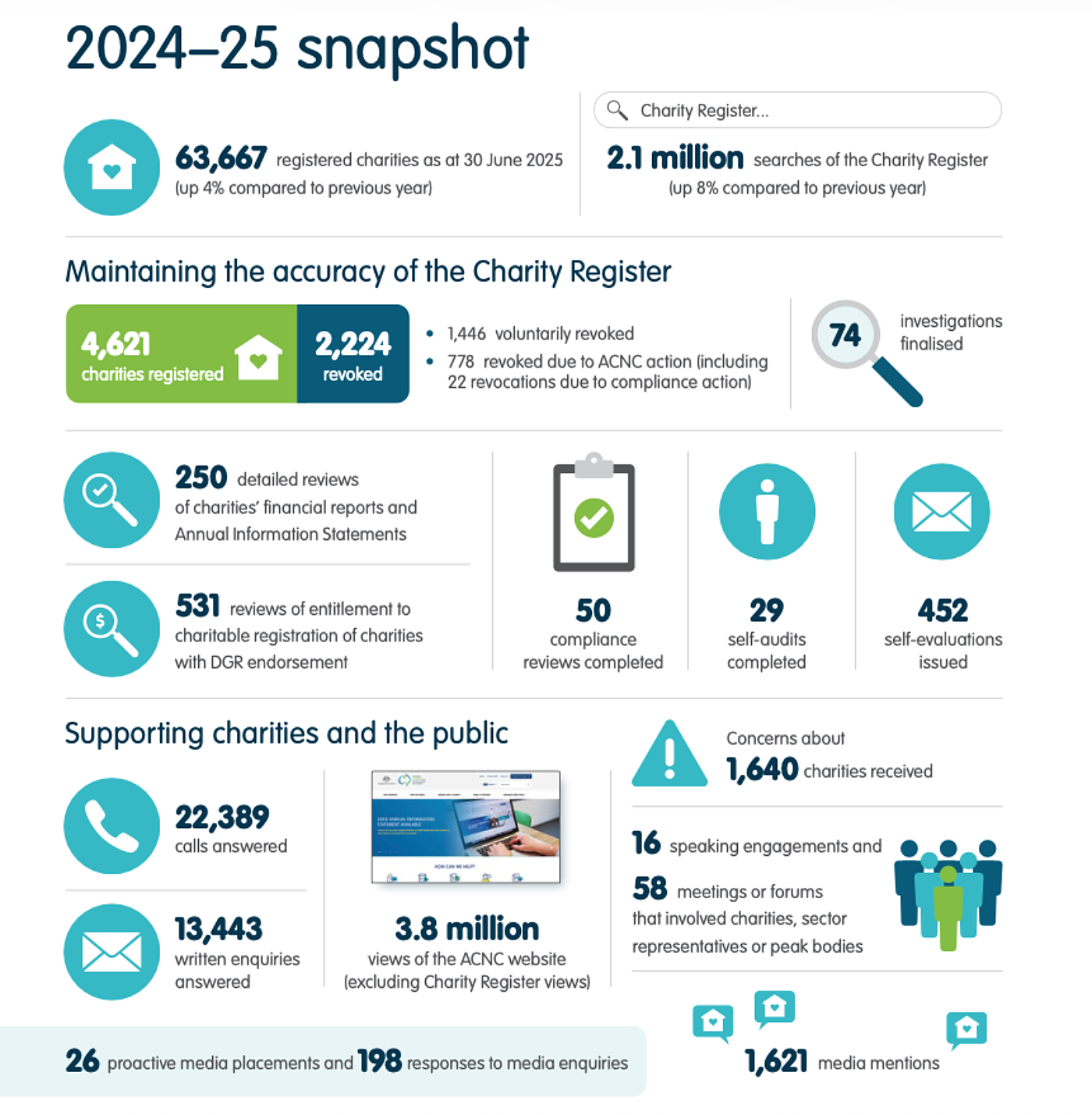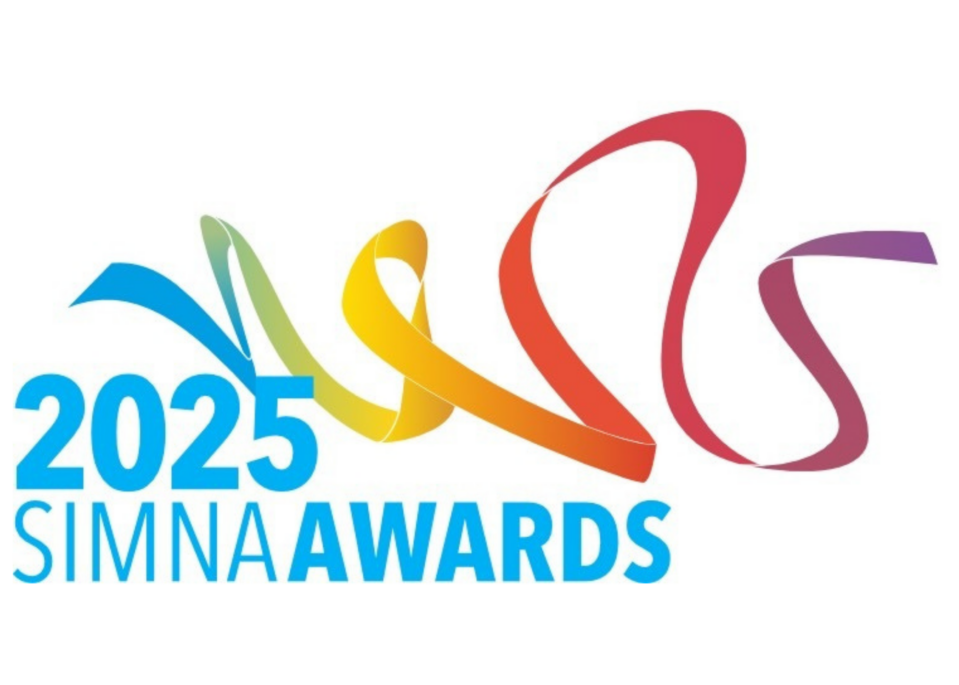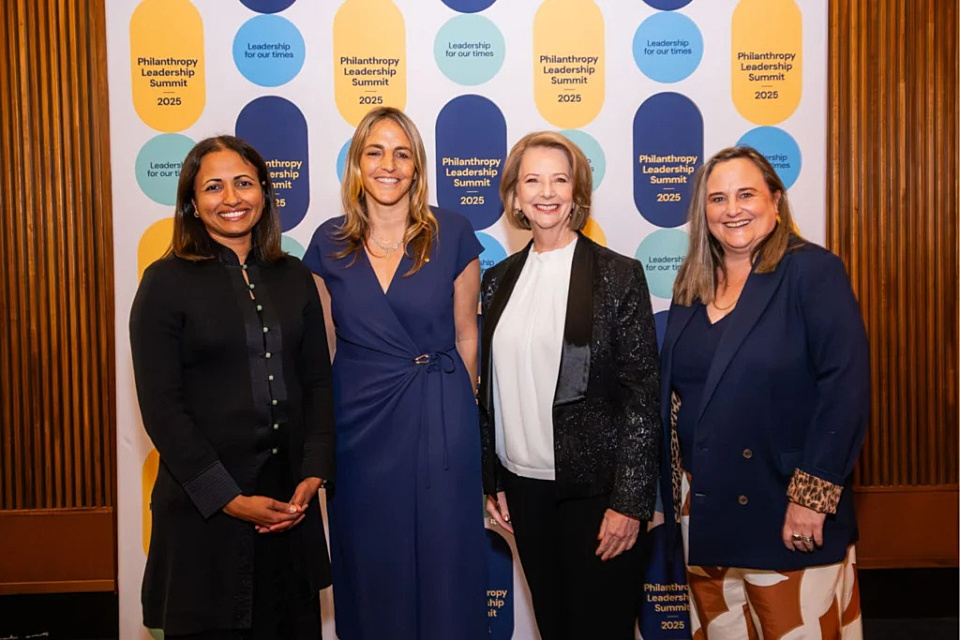
Pre-Budget pitch calls for new investment in NFPs and charities
Posted on 11 Feb 2026
Australia’s not-for-profits need strategic investment by the federal government to support the…
Posted on 05 Nov 2025
By Nick Place, journalist, Community Directors

The number of registered charities in Australia ballooned in the last financial year by 4621 new charities, the highest number in a year since the Australian Charities and Not-for-profits Commission (ACNC) was established in 2012. The figure was reported in the ACNC's annual report, delivered to government on Friday.
However, the spike was not a surprise. Commissioner Sue Woodward said more than half of those registrations came as a result of changes to reporting by NFPs who self-assess as income tax exempt.
The number of concerns about charities was also up, with the ACNC receiving 1640 queries, up from 1350 in the previous financial year, but the ACNC put an asterisk on the figure, saying, “This included what appeared to be coordinated efforts by groups of people lodging similar concerns using a template format.”

The headline activity of this annual report was always going to be the implementation of and sector response to the changes in ACNC administration when it came to not-for-profits who self-assess as income tax exempt
Under the NFP income tax self-assessment changes, the report explained, and as has been well documented in the Community Advocate, if a not‑for-profit entity with an Australian Business Number (ABN) wants to be exempt from income tax, it must be registered with the ACNC as a charity if it has charitable purposes, or submit an annual return to the ATO if it is not charitable and fits within one of the relevant ATO categories.
ACNC data shows that the commission received an estimated 930 queries about the reform, and that half of charity registration applications were related to the new assessment demands.
The Commission also said that it expects extra queries and applications for the next two years as the new reporting requirement beds down and is fully implemented.
While the sector’s revenue was at a record $222 billion (growing at a faster rate than sector expenses, which were $212 billion) and volunteer numbers were also up, at about 3.77 million people, the ACNC said data showed that smaller charities were not awash with cash. “Extra small charities” with revenues of less than $50,000 made up more than 30 per cent of the sector yet received only 0.1 per cent of total revenue, the figures said.
“Apart from the largest single donation ever recorded - $4.9 billion to the Minderoo Foundation Group – donations flatlined,” the ACNC reported.
"Our mindset is to ensure our Charity Register is accurate. With 2.1 million searches this year, up 8 per cent, we know it’s a powerful tool that informs safe giving and volunteering, both of which go to the sustainability of the sector.”

With a few exceptions, all registered charities must submit an annual information statement each year, detailing the charity’s programs, beneficiaries, human resources and finances, as well as audited financial reports for medium to large charities, to update the ACNC Charity Register, the main source of information for the public when checking the credibility and effectiveness of charities.
As of June 30, 2025, the ACNC said 73.4 per cent of charities had provided the information, slightly better than at the same time last year.
Commissioner Sue Woodward said the ACNC existed to support public trust and confidence in Australian charities.
“It’s what ties all our work together. Our mindset is to ensure our Charity Register is accurate. With 2.1 million searches this year, up 8 per cent, we know it’s a powerful tool that informs safe giving and volunteering, both of which go to the sustainability of the sector,” she said.
When it came to reported concerns about existing charities, the report said that every concern raised is assessed by the ACNC to determine whether public trust and confidence in the charity sector could be damaged by the complaint, and to ensure the complaint falls within the Commission’s jurisdiction.
Of the 1640 queries received, it said 56 per cent came from the public, including the alleged coordinated template complaints. Of the remaining queries, current or former employees of charities made up 12 per cent of concerns, and 7 per cent came from current or former “responsible people”.
As part of the Commission’s key role as the investigating body for charities suspected of non-compliance, or not acting in good faith, the report said 74 charities received notice of an investigation, with 93 per cent of those investigations resulting in regulatory action, although such action takes diverse forms, ranging from enforced education to revocation of charity status.
Concerns about the management of Brindabella Christian College by Brindabella Christian Education Limited resulted in revocation, the ACNC said. There was also a dispute over whether Equity Australia deserved DGR1 status, involving a clash of definitions that went all the way to the Full Court of the Federal Court.

Posted on 11 Feb 2026
Australia’s not-for-profits need strategic investment by the federal government to support the…

Posted on 04 Feb 2026
In this time of escalating climate impact, the head of Australian Ethical Foundation, Kate…

Posted on 10 Dec 2025
The Australia Institute has called on the federal government to force Australian businesses to be…

Posted on 11 Nov 2025
Australian charities are curious about how to use artificial intelligence and are increasingly…

Posted on 11 Nov 2025
Thousands of not-for-profit organisations are being held back by an outdated, rigid and complicated…

Posted on 11 Nov 2025
New grants worth $36 million aim to help farmers and farming communities prepare for drought by…

Posted on 05 Nov 2025
The number of registered charities in Australia ballooned in the last financial year by 4621 new…

Posted on 30 Sep 2025
Globally, collective giving is increasing in popularity as a fundraising method. Now, Philanthropy…

Posted on 09 Sep 2025
Left Write Hook is a charity that uses a unique blend of journal writing and boxing training to…

Posted on 01 Sep 2025
The competition to be crowned Australia’s best social impact practitioners is expected to be the…

Posted on 26 Aug 2025
For charities that sell tickets to fundraising events, using an online ticketing system or an…

Posted on 12 Aug 2025
Prominent Australian and global leaders from the philanthropic sector gathered behind closed doors…